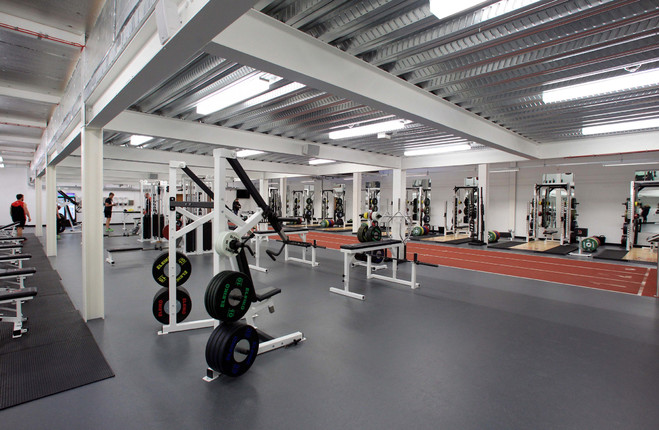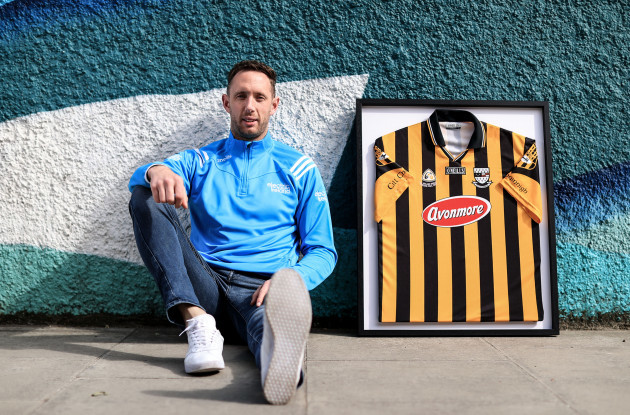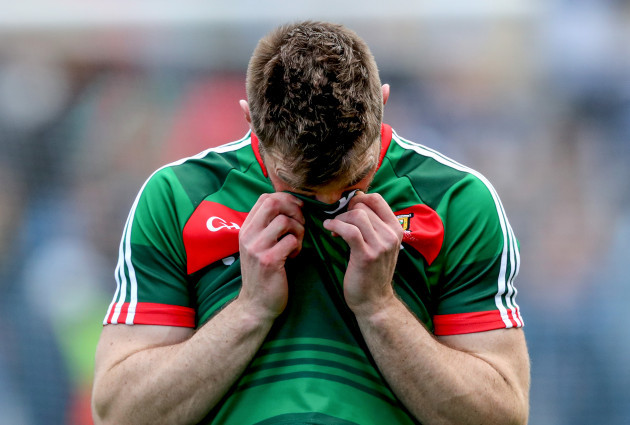THERE’S A FUN guessing game to be played when you scroll down through the results of this year’s Allianz Leagues.
What games had to be won for teams? When were they under proper pressure to get enough points on the board for survival?
When could they leave the footballs and hurls in a shed or the boot of a car and put in a night of torture? When did they just need their boots to plough through the muck and gutters and ‘character-forming’ stuff, and when did they just slip into a sleeveless vest and trainers for a night of lifting, gains and guzzling protein?
Who better than to tell us about it than Michael Fennelly, the record holder of combined All-Ireland medals between club and county with Ballyhale Shamrocks and Kilkenny.
A Lecturer in Applied Strength and Conditioning at TUS Midwest, Thurles campus, he has the theory and the practical experience from his own playing career, married to his time in the Kildare senior footballers backroom and three years managing Offaly hurlers.
Those grave mutterings from pundits about teams being in the midst of a ‘heavy block of training?’ And you thought it was just some lame line for a manager to excuse away a tricky defeat.
“Even the Walsh Cup games, they come in early in the year, they come in January and that,” Fennelly begins.
“So it’s difficult for the Strength and Conditioning, to get work into the players. And we see that in the league. A lot of teams are training hard and heavy in the week to try to get them ready for now, essentially.
“And that added to a lot of the games in terms of not being at the level that you would hope.
“They are trying to get a lot of work done in a short space of time.”
When it comes to this time of the year with the first cut of silage home, the championship brings varying challenges. Teams in Leinster have an in-built ‘down week’ after they all play the first three weeks. In Munster, the week off is rotated between teams and only two games were played in a period of almost three weeks.
It was different when Fennelly was playing under the old knockout scheme.
“With Kilkenny, you could have two weeks leading into a game so you can still work on strength. With the games you have your training sessions and there’s not as much in that. You are just topping up every couple of weeks,” he explains.
“But in terms of the games and intensity, Munster games are very intense at the moment. You would expect it is very, very hard to do stuff when you have a game three or four days later.
“You have a lot of recovery, a lot of tired bodies. It depends on the age profile of your team. There are players that wouldn’t have had a game and you are trying to get a bit of work into them.
“So you are balancing two different groups at times during this phase of the year, which can be challenging.”
The popularising of gym work over the last 20 years has led to a playing population much more au fait with concepts of hypertrophy, recovery, nutrition and rest.
From what Fennelly sees, players are developing their interest in this world continually.
“They are getting to the pool, they like getting on a bike and doing a bit. They are in the gym.
“In terms of an amateur game, these guys are professional in their commitment to their bodies. I have admiration for the amount of time they are putting into it.
“They are getting stronger. They are getting bigger, more powerful.”
He draws it back to the start of his playing days by stating, “If you compare a player from 15 years ago, you see a players a lot more chiselled now in terms of their body.
“You wouldn’t have seen too many six packs back in my days, maybe two in the group. But they all have six packs now.
“With the condensed season, it is a difficult trick. You have to balance the books. You can’t overly push them either.
“We seen last year maybe with Waterford, I didn’t see the training sessions but there was rumours that they maybe pushed them too hard after the league final.
“Whether that happened or not, I don’t know. But again, you have to balance the books and understand your team.”
This weekend, the round-robin concept returns to Gaelic football. It’s been tried before with the ‘Super 8’s’ in 2018 and 2019. The Covid-interrupted season of 2020 was due to be the third year of the trial but that never happened with significant structural changes to the All-Ireland series being floated in successive GAA Congresses.
There will be just one game between teams in each of the four groups this weekend. Those teams will then have a week off as the other teams meet. All teams will play on the weekend of 3rd and 4th of June and will have another week off before the concluding round.
There’s a bit of rest thrown in there, but while there are more games than ever, that’s what players prefer, insists former Mayo midfielder Seamus O’Shea.
“We got into a habit of winning Connacht early on in the last decade. That was great, it was good to us and all that,” he begins.
“But it meant there were massive gaps between the games. Which isn’t ideal.
“The years that I remember best are the ones where we went to the qualifiers and we had those games week on week and it is much more enjoyable. Providing you avoided the injuries, they were much more enjoyable.”
As a panel, there was no greater logistical challenge than hosting a Mayo training session with so many of their core group based in Dublin during James Horan’s first spell in charge.
Meeting up midweek was a challenge in itself but because of the travel involved, Mayo were inclined to race themselves lightly when they were chock-a-block with games.
“It is harder for the guys who are subs and aren’t playing as much,” O’Shea explains.
“They would do a decent enough session during the week, and the guys who have played are doing very little. You probably get together once for a pitch session and you are doing your own recovery work.
“But the pitch session is typically pretty light and you might meet up again for a kickaround before the weekend, say on the Friday or Saturday before the game on a Sunday.
“Lads would do the video analysis. It’s more about meetings and recovery than it is about anything on the pitch. And for the guys who haven’t played as much, they will be on their own schedule and trying to make up for the fact they haven’t played, keeping their legs ticking over.”
Over the next few weeks, there will be 24 games played in order to weed out four teams. On one hand, the system almost entirely guarantees that the final round will have weight bearing on it.
On the other, there’s a whole load of action played at half-throttle.
“As a player, I would much rather be in those games where everything is on the line. There was something about getting to an All-Ireland quarter-final, either through the qualifier or winning your province, and realising that, ‘oh, shit, we have to win or go home here today,’ and there’s a nervousness around the place,” says O’Shea.
“It’s great to play more games, but it would be better if the games carried more weight and more purpose.”
But anyway. The third different football championship structure this century, begins this weekend. God bless all that sail in her.



